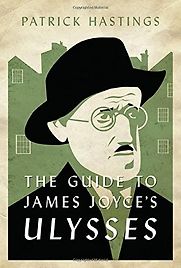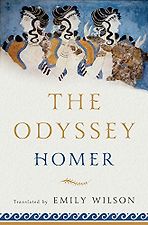The Guide to James Joyce's Ulysses
by Patrick Hastings
It’s supposed to be an amazing experience reading James Joyce’s Ulysses but, unfortunately, many of us aren’t up to the task on our own: we need help. The Guide to James Joyce’s Ulysses is by Patrick Hastings, creator of the UlyssesGuide.com and a long-term teacher of Ulysses. The book is accessible and easy to read, comprehensive without being intimidating.







For those of us who have tried to read James Joyce and failed—or haven’t yet tried but want to embark on our expedition well-prepared—can you explain how exactly to go about it?
In order to build momentum, I recommend reading at least one episode per week, and I think readers benefit from completing their reading of that episode within 24 hours of starting it. If you try to read a page or two at a time, you’ll lose the thread and won’t get into the rhythm of the language or track the character development. So, perhaps you’ll want to carve out some time each week on Sunday afternoons or Wednesday evenings as your Ulysses time. Some readers might want to read the relevant Episode Guide in my book prior to reading the text itself; others might want to read the novel cold and shore up their understanding by reading the explanations I offer in my book afterwards. That is really up to what works best for each individual reader.
Any specific edition of Ulysses we should be reading? Is the audiobook a good way into it (I ask this because one person I interviewed said that might be a solution)?
I have keyed my guidebook to the Gabler edition, which seems to be the most widely used edition in scholarly writing. It is a bit larger than the Vintage 1961 edition, so you have larger font and more space in the margins for notes. In terms of using an audiobook, the RTE performance of the text is really fun, but there are many other fantastic renderings out there. Lots of readers will enjoy hearing the poetry of the language out loud, but those listening should check in with the physical text every so often to get their bearings and pick up some of the purely textual elements. Some of the jokes only work on the page. Read more